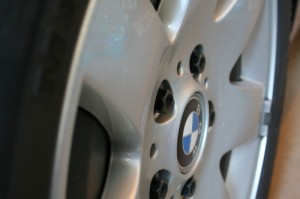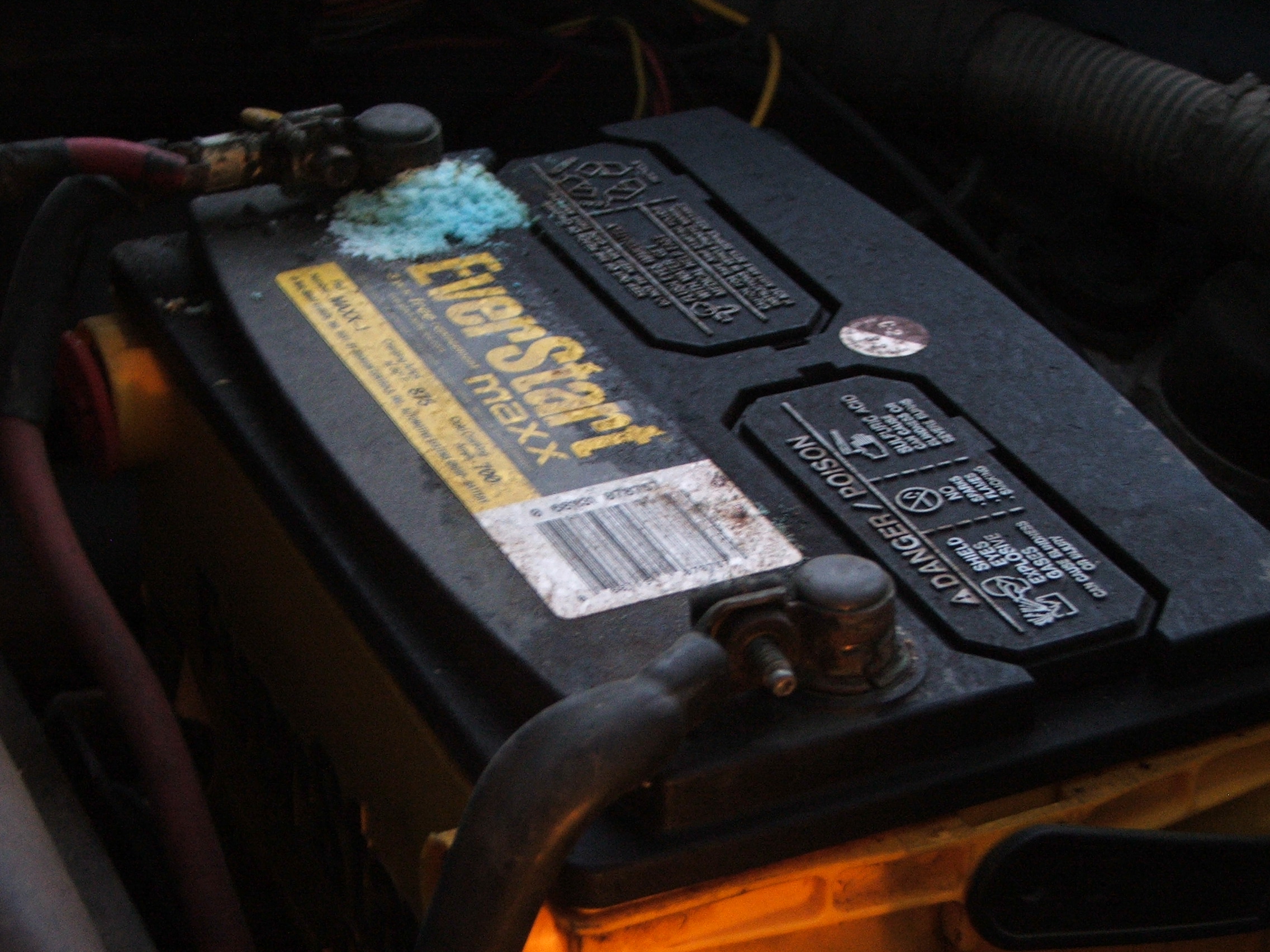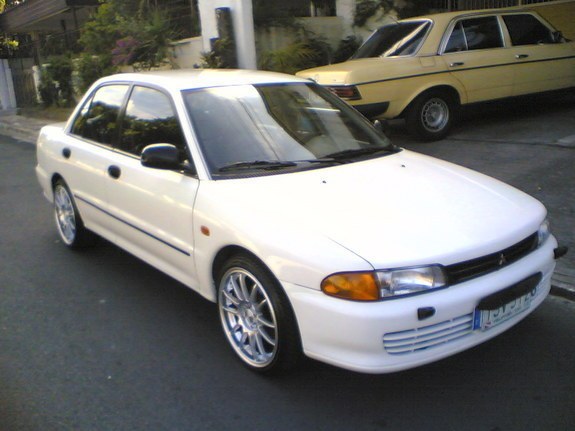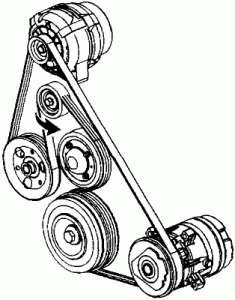Disc Brake Squeal on BMW 3 Series
 Question: Just purchased used BMW 3 series…automatic…diesel…
Question: Just purchased used BMW 3 series…automatic…diesel…
Answer: Yes, more than likely the brake squeal you hear is normal. Brake dust and pad design can cause some brakes to squeal more than others.
On your next brake pad change, make sure the mechanic cleans everything well and applies an anti-squeal coating to the back of the pads. (see products below) I use this on every brake job I do and rarely have issues with squeal.
There are wear pads on most modern brake pads which let you know it’s time to change the brake pads, but that is usually a louder noise. If you think it might be the wear indicators, I would take it to another shop you trust and have them pull the wheels and inspect the pads.
Posted: 11th October 2016 | Author: Kevin Schappell | Category: General
Starter and Battery Issues
 Question:
Question:
My car suddenly would not start. It made a clicking noise when
I turned the ignition and the lights on dash/etc. came on when
I turned the key. I was able to jump start it easily, but it
wouldn’t hold a charge. I also cleaned the corrosion off the
battery and was able to start it…but then again, nothing.
I expected it was the battery and/or alternator. I took it
to a mechanic who insisted it was the starter and the battery/elec
system was getting a charge. He seemed like a decent guy.
But, then in the end…he replaced the starter and the battery.
Suddenly, he found a friend with a wrecked car and gave me that
starter for free…charging me 140 to install it and then the
battery cost/install. I am getting wildly different information
from people around me…some saying it would not be at all possible
to jump start that car if the starter were bad- yet others say it
could happen. Was he telling me the truth or have I just paid for
something that didn’t happen/not nec? Help?
Answer:
The clicking noise is the solenoid, which is usually part of the
starter. Over time the solenoid contact points will arc from the
current flowing through the connection and will not make a good
connection to turn on the starter. You hear a click, but the starter
does not turn over. Sometimes a jump start will provide just enough
of an extra boost to overcome that corrosion on the solenoid. It’s
possible that is what was going on in your case.
Regarding the battery, your mechanic more than likely put a volt meter
on the battery with the engine running, this would tell him if the
alternator was charging. He may also have done a load test on the
battery to determine health of battery. If your battery was over 3
years old, it was probably a good idea to replace it anyway.
With all that said, the friend with a wrecked car sounds shady, and
$140 for install of a starter sounds high to me, he was most likely
hiding the cost of the used started in there. Most cars should take
an hour or less to replace the starter, at a shop rate of $60 – $80/hr
with an independent shop. This scenario also makes me think he could
have been hiding the fact that he did not change anything (Did he show
you the new/old starter?) since he was putting in a used starter, it
would be hard to determine if it was actually replaced since both
would look used. Hope that makes sense, and don’t want to say for
sure that was his motivation, but it’s always possible.
Posted: 12th August 2016 | Author: Kevin Schappell | Category: Electrical, Engine
1995 Mitsubishi Lancer GLXI upgrades?
 Question: I have a 1995 Mitsubishi Lancer GLXI, fuel injected,what are the things I can do to improve its performance? things I can change and upgrade.. thank you for your time
Question: I have a 1995 Mitsubishi Lancer GLXI, fuel injected,what are the things I can do to improve its performance? things I can change and upgrade.. thank you for your time
Answer:
Not sure if you have the turbocharged version or not but will start out with suggested upgrades for both versions and then touch on the turbo only upgrades…
General upgrades on turbo/non-turbo engine.
1. Intake and exhaust. The basic upgraded which get your engine breathing (intake) and exhaling (exhaust) better. For intake, typically a cold-air kit, which allows the engine to pull from cooler outside air, as opposed to hotter under-hood air is best. Exhaust is usually personal preference, no need to go for exotic materials like titanium but stainless steel will provide longer life. Sound level is a preference, not always an indication of how well the exhaust performs. With all of the suggestions I give, I would check online forums for other owners suggestions. You can sometimes find good advice, group discounts on parts, or even used parts at a good savings.
2. Computer – Most car companies tune their engines for long life and err on the safe side when it comes to timing, fuel curves etc. There may be a chip or add-on tuner which you can add to give your car more performance.
3. Cam shafts – Not sure of your specific engine, but this would be my last recommendation however could be pricey. The camshaft tells the valves when to open and close, by telling the valve to open sooner, or longer you can get more fuel and air in to the engine, this will allow you to make more power. Not the easiest job to replace the camshafts, or the cheapest, so it’s probably the last step.
Now on to the turbo engine (if you have it)
1. I would look at increasing the boost with a boost controller. Most Japanese cars can be adjusted with a manual boost controller or electronic controller without having to mess with the ECU (Engine computer). This can be dangerous turning up the boost too much with the resulting pre-detonation being capable of melting pistons. It’s also possible to turn the boost pressure up too much and out running your fuel injectors. To keep the proper fuel mixture your fuel injectors will have to work extra hard to keep up with the extra air going in to the engine. It’s possible you will need to upgrade the injectors depending on how much boost you want to run.
2. Intercooler: Compressing air in the turbo produces heat, hot air makes less power in your engine since it’s less dense than cool air. A better intercooler will cool down the air after the turbo and allow for more power.
Good luck and let me know if you have any other questions,
Posted: 27th July 2016 | Author: Kevin Schappell | Category: Engine, Exhaust
No A/C Power Steering and Battery Light is ON.
Question: I have a 2004 Lincoln Towncar and my AC went out there was a smell like burnt plastic,then a knocking noise started when i start my car.Today my steering wheel is very hard to turn and the battery light stays on the car struggles to stay on.
I have a 2004 Lincoln Towncar and my AC went out there was a smell like burnt plastic,then a knocking noise started when i start my car.Today my steering wheel is very hard to turn and the battery light stays on the car struggles to stay on.
Answer: Most likely the serpentine belt has broken. Do not drive the car as
the water pump could be driven by that belt and overheating could occur. The belt typically runs the alternator, air conditioning compressor and power steering pump. As stated before, it could also drive the water pump, but most modern cars have the pump driven by the timing belt. Should be a $25-$45 belt and a fairly easy job to replace. Whoever does the work should check all pulleys and make sure nothing is seized. The burning rubber smell could have been from a seized idler pulley, tensioner or accessory pulley, which caused the belt to heat up and snap.
Posted: 24th July 2015 | Author: Kevin Schappell | Category: Cooling, Electrical, Engine, Heat & AC
Car overheating and A/C not working at times.
Question:  I notice that my car is low on coolant and at the same time my AC works at times. When i sit in traffic or sometime when i drive the gauge reaches almost to over heat and the A/C stops working, could that be because i am low of coolant?
I notice that my car is low on coolant and at the same time my AC works at times. When i sit in traffic or sometime when i drive the gauge reaches almost to over heat and the A/C stops working, could that be because i am low of coolant?
Answer: The A/C and engine coolant systems are linked by the radiator and condensor which both sit in front of the engine and are cooled by a fan. If there is a problem with the fan, your engine will tend to overheat when in traffic (low speed) but temps should go down when at highway speeds. If the condensor does not receive adequate airflow the A/C system will not operate properly as well. Depending on your car, you may have a mechanical fan or electric. A mechanic should be able to diagnose.
As to the coolant issue, low coolant can cause overheating, but more than likely if you are reading the coolant level from the overflow tank, it’s due to the overheating (water expands as it’s heated) issue and excess water is being dumped when the engine overheats. Then when the engine cools off, the level drops in the overflow tank and it appears you are low on coolant. The above information is my “best guess” given the information you provided, and knowing you are having these two issues happening at the same time. With any engine overheat issue there are other basic things a mechanic will check like water pump seal leakage, radiator cap and restrictions in the radiator itself due to leaves and debris.
Posted: 1st June 2015 | Author: Kevin Schappell | Category: Cooling, Heat & AC
